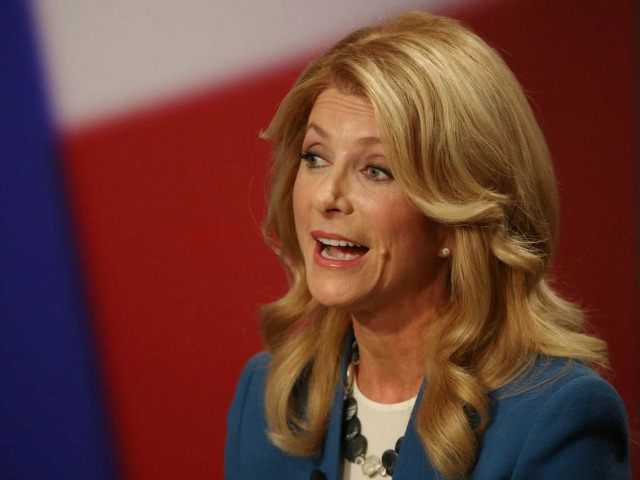Gross!
*Updated with more e-mail reaction
An e-mail FOIA batch released by the State Department Friday included a bizarre transcript of an October 2012 interview that Wall Street Journal reporter Monica Langley had with then-Secretary of State Hillary Clinton.
The source of the email and transcript, State Department Communications Director Caroline Alder, commented, “This will be exciting when it’s FOIA’d…but will give you a sense of the interaction.”
Langley is invited to sit on the couch with Clinton at “an appropriate distance.” However, Clinton offers her a chair to bring her “within inches of the Secretary — leaning in even further.”
The reporter agrees and midway through the interview, she “grabs HRC’s knee” and Clinton began laughing “awkwardly” as she looked over at State Department Clinton senior advisor Philippe Reines.
Langley leaned in further and asked “Oh Hillary…what do you eat? Drink? Dream about when you sleep?”
At that point she began touching Clinton’s leg again and all those present in the room, including Reines, laughed “awkwardly.”
Finally, Langley tells Clinton, “They think I’m so funny [looking at Phillipe and Adler]. Hill, can I ride in your lap to the White House?”
Adler ends the transcript saying, “…this went on for about 51 minutes. And I agree with Phillipe — whatever she does, it works. It was a really great interview.”
Politico found other e-mails from Deputy Secretary of State Tom Nides and Reines reacting to the transcript sent by Adler.
“Tom, was an awesome interview. Hrc was great, but I was really impressed by how good of an interviewer Monica is. One of the best I’ve ever seen. But she was her usual wacky self and pulled one move that I can’t even describe so I’ll let Caroline do – since you’ll appreciate it given your familiarity with Monica Langley, Hillary Clinton, and the Secretary’s chair arrangement in her outer office,” Reines said before Adler sent the transcript.
Nides responded to the transcript saying, “I may go and throw up since I am laughing so hard.”
Reines writes back, CC’ing Clinton herself in the e-mail chain:
“Tom, she moved that yellow chair as close as it went. Knee to knee. Amazed she didn’t try knee in between knee. And if that wasn’t enough, she leaned forward. More like a pivot, as far as her torso could fold forward to minimize the space between their heads. Was like the dental hygienist rolling around the floor to get the best access to your mouth depending on what tooth she was trying to get access to I’ve never seen a Westerner invade her space like that And even the non Westerners I’ve seen do it based on cultural differences have been only briefly to greet, This went on like that for 51 minutes – unacceptable in any culture. I don’t even think you see that behavior among any type of mammal.
The touching the leg and repeatedly calling her ‘Hillary’ was just gravy.
But it was wonderful. One of the best interviews I’ve ever witnessed. Wish it were on live tv.”
Via: Daily Caller
Continue Reading....












